This is the story of my life so far: 67 years and counting.
Prequel: A Brief History of my Family in France
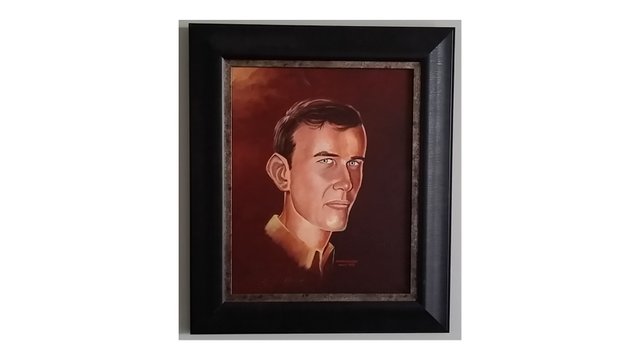
The story starts here
Previous episode: Part 30
Easter Island
We left Valparaiso on December 24th, and headed west.
That means that we were at sea for Christmas.
En route to French Polynesia, we stopped for one day at Easter Island, on December 30th.
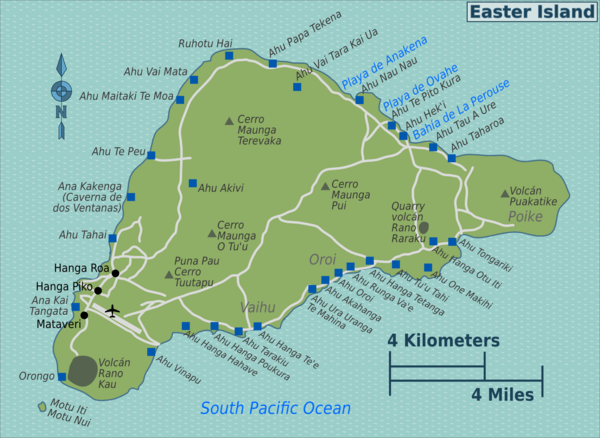
Map of Easter Island (Rapa Nui)
source
Easter Island (Isla de Pascua in Spanish, Rapa Nui in the local Polynesian language) is a possession of Chile and is one of the most remote inhabited islands in the world.
The nearest inhabited land (around 50 residents in 2013) is Pitcairn Island, 2,075 kilometres (1,289 mi) away; the nearest town with a population over 500 is Rikitea, on the island of Mangareva, 2,606 km (1,619 mi) away; the nearest continental point lies just in central Chile, 3,512 kilometres (2,182 mi) away.
As there was no possibility of mooring or even to anchoring, we were transported ashore and back in three of the four helicopters HSS-1 (Sikorsky H-34) that were embarked on the ship.
On each rotation, every two minutes, twelve passengers were transported to or from the island.

HSS-1 Landing on the Jeanne d'Arc
source
I spent several hours on the island. Of course, I went to see the moai, these monumental statues that made Easter Island famous.
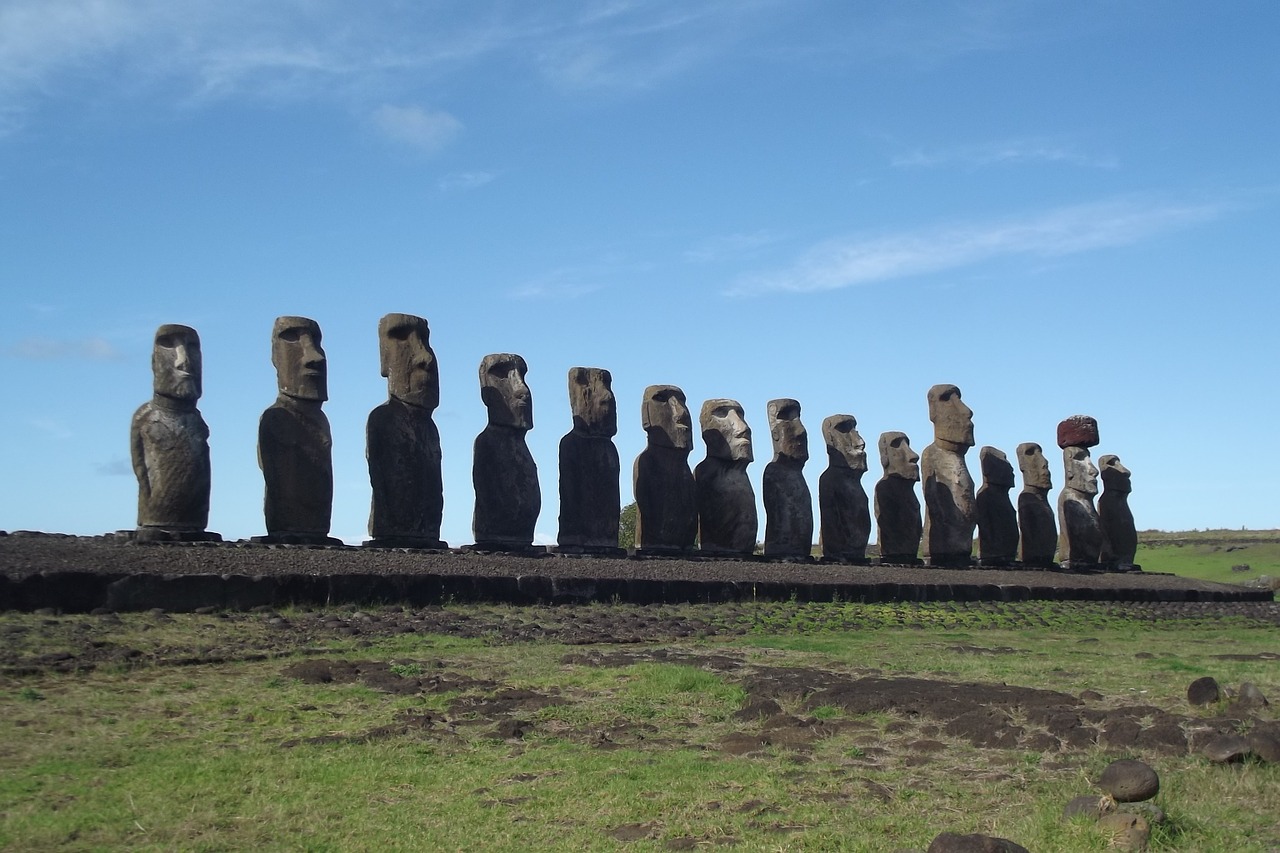
Moai on Easter Island
source: Pixabay
We traveled on the island on horse. It looked like you did not rent the horse, but you bought in for a small price. When you are done with the horse, as you cannot remove it from the island, it would return to its real owner.
The saddles on the horse was made with wood. After several hours on this saddle, I got two open wounds, one on each buttock, and I had trouble sitting for several days.
We spent also New Year's Eve at sea, en route to Tahiti.
Moruroa
Before Tahiti, we stopped for two days at Moruroa. This is the atoll where the French nuclear experiments were performed at this time.
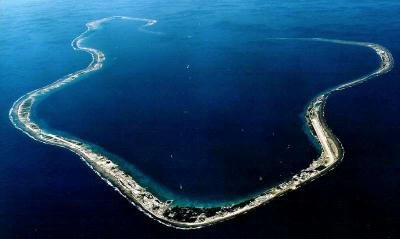
Aerial View of Moruroa
source
While we were anchored in the lagoon, we visited some installations of the "Centre d'Expérimentations du Pacifique", (Pacific Experimentation Center), the organization that was running the nuclear tests.
Once again, we were quite bored during this visit. At some point we were in an office, where there was a simple programmable machine, identical to one I had use at the École Navale. The display was a narrow printer with a paper
So, I quickly programmed it, with 3 instructions:
- Start
- Skip a line
- go to Start
And I run the program: the printer was slowly cranking the paper spool.
We left the office, very proud of this stupid joke.
Papeete
After Moruroa, we finally arrived in Papeete, the capital of French Polynesia, on the island of Tahiti, on January 10, 1971.
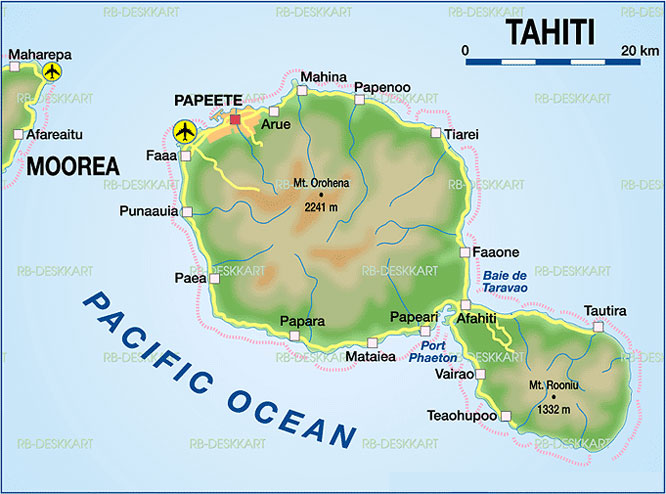
Map of Tahiti
source
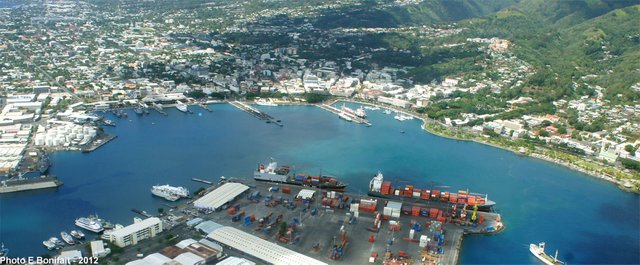
Aerial View of the Papeete Harbor
source
We stayed in Papeete for a week.
I have no specific memory of this first stay in Tahiti. I returned to Tahiti later for one of my post.
Bora Bora
After Tahiti, we went to Bora Bora where we arrived on January 17th.
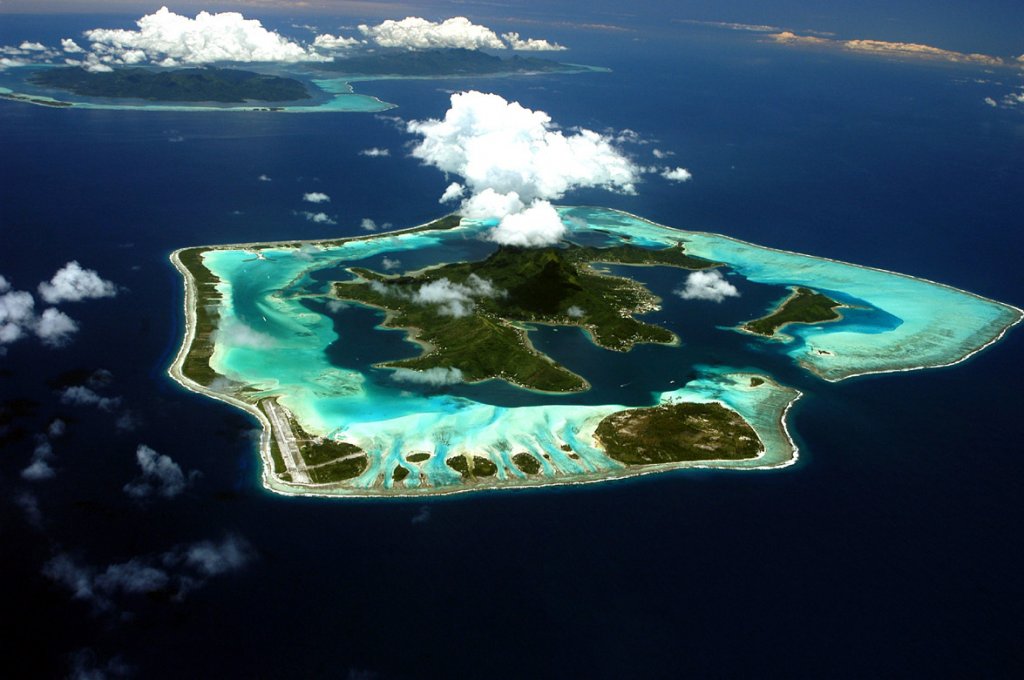
Aerial View of Bora Bora with Tahaa and Raiateia in the Background
source
Bora Bora is one of the most beautiful island in the Pacific ocean.
In World War II the United States chose Bora Bora as a South Pacific military supply base, and an oil depot, airstrip, seaplane base, and defensive fortifications were constructed. Known as "Operation Bobcat", it maintained a supply force of nine ships, 20,000 tons of equipment and nearly 7,000 men. Seven artillery guns were set up at strategic points around the island to protect it against potential military attack.
However, the island saw no combat as the American presence on Bora Bora went uncontested over the course of the war. The base was officially closed on June 2, 1946. [Wikipedia]
The airstrip has since been made a small airport and this is how most of the 20,000 tourists come to Bora Bora every year.
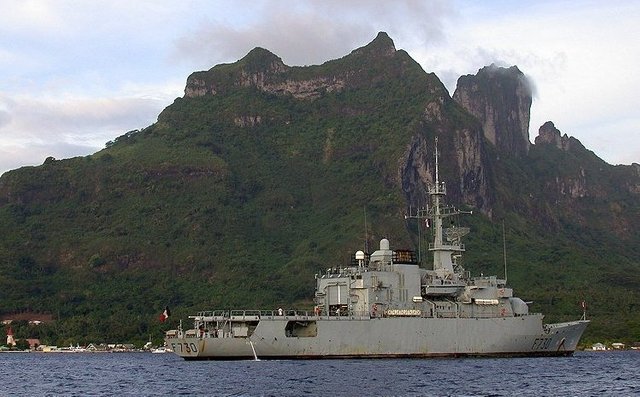
French Navy Ship at Anchor in Bora Bora Lagoon
source
As there was no place to moor, the ships were anchored in the lagoon.
After a week, where we mostly rested and enjoy the white sand beaches, we departed towards North America.
Continue to Part 32
If you like this story, please consider to follow me
Summary
Part 1 - Part 2 - Part 3 - Part 4 - Part 5 - Part 6 - Part 7 - Part 8
Part 9 - Part 10 - Part 11 - Part 12 - Part 13 - Part 14 - Part 15 - Part 16
Part 17 - Part 18 - Part 19 - Part 20 - Part 21 - Part 22 - Part 23 - Part 24
Part 25 - Part 26 - Part 27 - Part 28 - Part 29 - Part 30

thank you for the travel story, that wooden saddle did leave a mark. I should have joined the navy too for this type of experience.
Downvoting a post can decrease pending rewards and make it less visible. Common reasons:
Submit
Wow Moruroa is beautiful ... why would you bomb it. Great photos followed.
Downvoting a post can decrease pending rewards and make it less visible. Common reasons:
Submit
Good post greetings
Downvoting a post can decrease pending rewards and make it less visible. Common reasons:
Submit
those are very beautiful islands to visit.
Downvoting a post can decrease pending rewards and make it less visible. Common reasons:
Submit
Yes, absolutely.
Downvoting a post can decrease pending rewards and make it less visible. Common reasons:
Submit
Upvoted and also resteemed :]
Downvoting a post can decrease pending rewards and make it less visible. Common reasons:
Submit
I bet that was an uncomfortable ride, but I bet seeing the giant stone heads was worth it! Oh your travels are amazing! If only I could do all this one day! I can and I will!
Thank you for letting us live vicariously through you.
Downvoting a post can decrease pending rewards and make it less visible. Common reasons:
Submit
You are welcome.
Downvoting a post can decrease pending rewards and make it less visible. Common reasons:
Submit
Awesome experiences! The final remnants of Lumeria perhaps... hmmmmm :-)
Downvoting a post can decrease pending rewards and make it less visible. Common reasons:
Submit
French Polynesia is my dream location. Motu Tane (Bora Bora) is for sale at $50,000,000. I can only afford a handful of sand and a couple of shells at the moment. The Brando in Tetiaroa looks a perfect getaway.
Downvoting a post can decrease pending rewards and make it less visible. Common reasons:
Submit